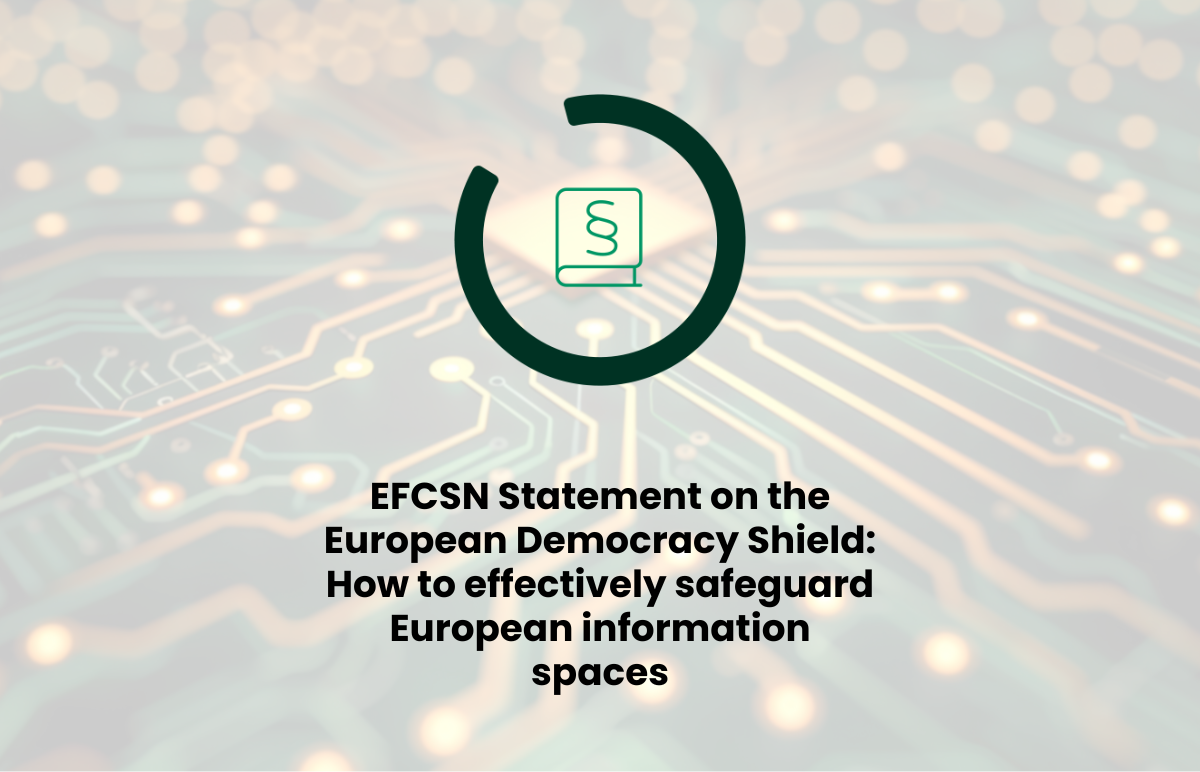
- The Democracy Shield should tackle both foreign and domestic disinformation sources.
- The EFCSN welcomes that the Democracy Shield will strengthen fact-checking in Europe.
- The EU must enforce its digital rulebook robustly and provide more funding for democratic resilience, information integrity and independent media.
12 November 2025 – The European Democracy Shield, which the European Commission detailed in a communication published Wednesday, is an important step towards safeguarding Europeans from disinformation.
However, meaningful protection against information threats must include the full spectrum of challenges. The focus on foreign information manipulation and interference (FIMI) is important, but disinformation often has domestic origins as well. Countering disinformation should not be limited to election times. Addressing these issues demands a strong, independent media ecosystem and a vibrant civil society. This fight cannot be left to government agencies alone. Civil society actors, especially fact-checkers and journalists, play a vital role in monitoring, documenting, and responding to evolving information threats.
We welcome that the Democracy Shield proposal explicitly aims to strengthen and support fact-checking organisations. As the European association of independent fact-checking organisations, the EFCSN—representing 62 member organisations across 36 countries—stands ready to engage constructively in this process. We will continue to ensure that fact-checking in Europe remains independent, transparent, and impactful.
The Shield proposal includes the establishment of a European Centre for Democratic Resilience. The aim is to improve coordination and information sharing among stakeholders. The fact-checking community is ready to contribute. For several years, we have worked to collect structured data on disinformation trends, making it accessible and actionable for a wide range of stakeholders, from policymakers to civil society groups. We remain committed to advancing this work collaboratively across Europe.
Importantly, large digital platforms have a profound impact on Europe’s information environment. Effective and robust enforcement of the Digital Services Act (DSA) must therefore complement the Democracy Shield. Thus, it is good news that the enforcement of DSA provisions are labelled “key priorities” in the Democracy Shield. We also welcome the Commission’s announcement to assess the levels of Big Tech’s commitments under the Code of Conduct on Disinformation and their implementation. As we have stressed in the past, platforms have retreated from their commitments and only selectively comply with the Code. Europe’s digital rulebook must be enforced robustly. The EU Commission’s communication on the Democracy Shield lists numerous measures and activities to strengthen information integrity and democratic resilience. These do not come for free. In the next Multiannual Financial Framework the EU has to earmark substantial sums for this work. The proposed funds for information integrity, for example, in the AgoraEU program are a good first step. But considering the immensity of the challenge and the fact that Europe’s enemies pour billions into propaganda and disinformation, it is not enough. That is why we have called for long-term and consistent investment in free and independent media and fact-checking.